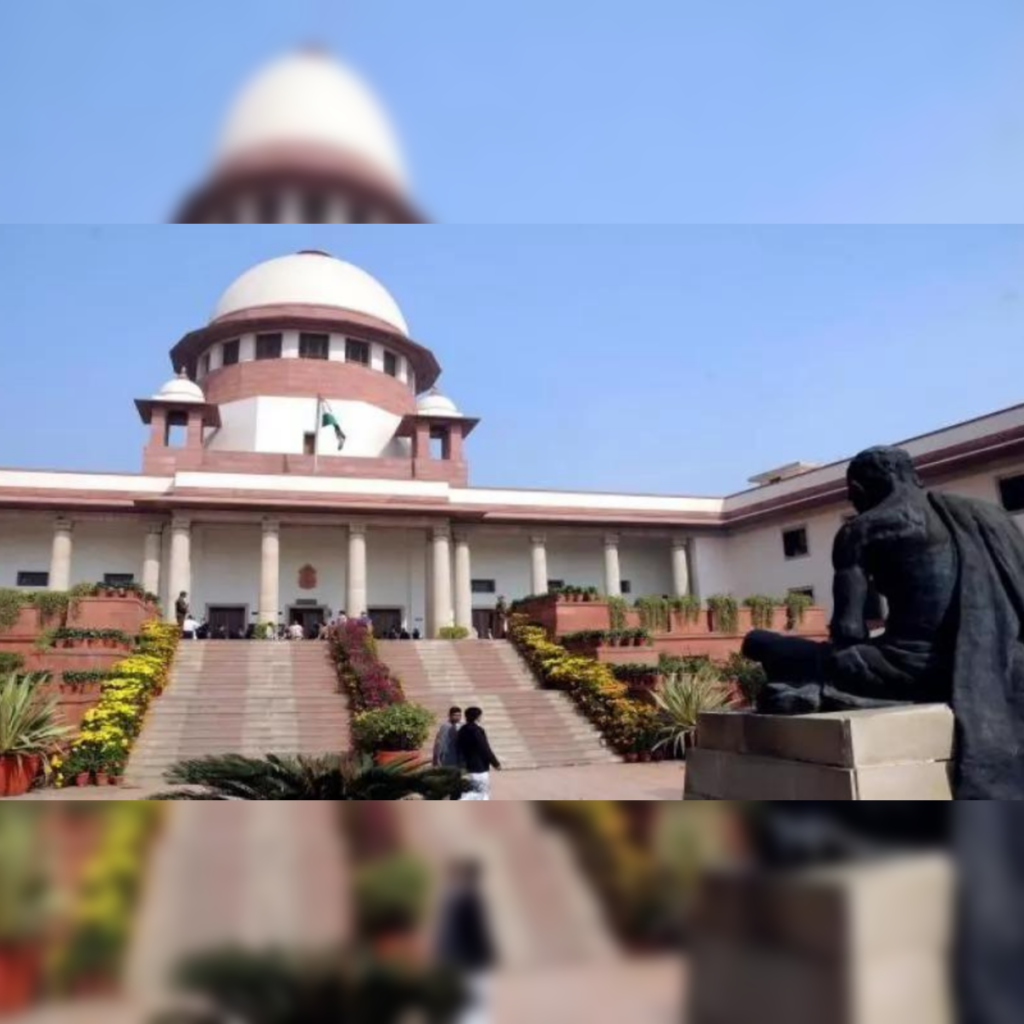The Supreme Court has directed the Election Commission to respond to a query regarding the reduction or removal of disqualification periods for lawmakers following convictions in criminal cases. This move follows concerns about the EC’s discretionary power in altering disqualification periods set by law. The case, which emerged from the ongoing scrutiny of election laws, raises critical questions about accountability and fairness in the political system.
The matter was raised during a hearing where the bench sought clarification on how often the EC had taken such actions in the past. The court’s query stems from growing concerns about lawmakers convicted of serious crimes who, in some instances, have been allowed to resume their political activities before the statutory period of disqualification ended.
The Election Commission, which plays a vital role in ensuring fair elections and the integrity of political processes, is responsible for enforcing the rules that govern the eligibility of candidates. Under Indian law, individuals convicted of crimes with a sentence of two or more years are typically disqualified from contesting elections for a period of six years after serving their sentence. However, the law also permits the Election Commission to intervene and shorten or completely lift this disqualification under specific circumstances, often based on legal interpretations or policy decisions.
Legal experts have raised concerns about the potential for misuse of this provision, especially when the decisions seem to favour politicians who may have influence or resources to push for leniency. There have been instances where disqualification periods were either reduced or entirely removed, sparking debates about whether this undermines the intent of electoral laws designed to ensure that only law-abiding citizens are allowed to represent the public.
The court’s decision to seek a response from the Election Commission is part of a broader effort to address issues related to criminality in politics. This issue has been a significant point of contention in the country’s political discourse for years. Critics argue that allowing convicted criminals to return to political office, especially after reduced disqualification periods, sends the wrong message to voters about the seriousness of criminal convictions and their implications for public office.
Several high-profile cases have highlighted the tension between political expediency and the legal system’s responsibility to ensure fairness. Among them, the re-entry of convicted politicians into the electoral fray has often sparked public outcry, particularly when disqualification periods are altered with little transparency. The Supreme Court’s intervention could pave the way for a more rigorous examination of these practices.
Political observers note that the growing number of cases involving lawmakers with criminal backgrounds has raised alarm bells among citizens who question the effectiveness of disqualification laws. In several instances, politicians with ongoing criminal cases have contested elections after successfully appealing their disqualification periods or securing political backing to overturn them. These developments have contributed to the public perception that the political system is too lenient on those convicted of serious crimes.
The ruling is likely to reignite the debate over electoral reforms aimed at increasing transparency and accountability in politics. While many argue that political parties should take more responsibility for ensuring that candidates have clean records, others contend that the system’s current provisions allow too much room for judicial and executive discretion, which could be subject to undue influence.
In parallel, various non-governmental organisations and civil society groups have advocated for stricter guidelines regarding the eligibility of politicians with criminal records. They argue that a clearer framework needs to be established to prevent the political system from being seen as a sanctuary for convicted criminals. Proponents of this view also highlight the need for a robust mechanism that allows the Election Commission to enforce disqualification provisions uniformly, without fear of political pressure or interference.
The court’s request comes at a time when there is increased public demand for stricter laws on criminal candidates. Citizens have expressed frustration over the apparent ease with which some convicted politicians manage to bypass disqualification laws. This is especially true in states where the political landscape is often dominated by a few powerful figures whose influence extends into the legal and electoral processes.
Legal scholars point out that the issue also raises questions about the independence of the Election Commission. If political pressures influence its decisions regarding disqualification, it could erode public trust in the fairness of the electoral process. For this reason, many believe that the time has come for a more stringent review of how disqualification periods are handled and whether the current system adequately addresses the needs of a modern democracy.




 Court Designates Sambhal’s Shahi Masjid as ‘Disputed’
Court Designates Sambhal’s Shahi Masjid as ‘Disputed’ 